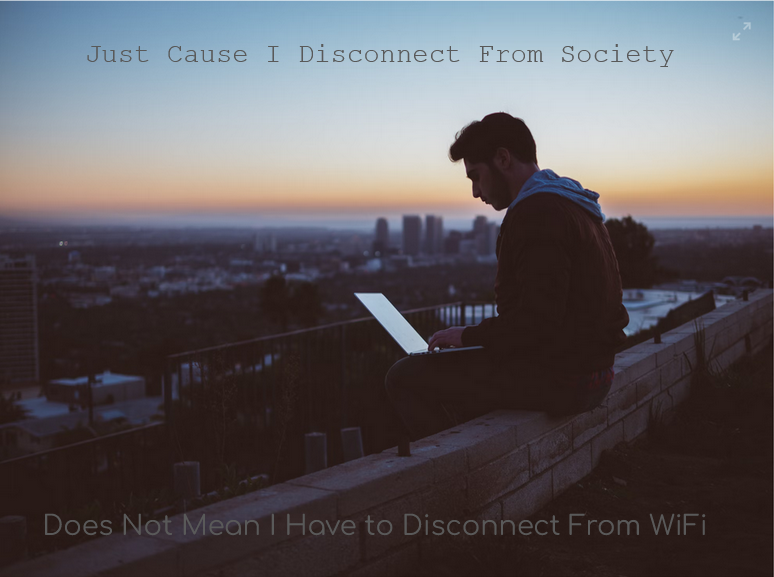Meme 1:

Meme 2:

Meme3:

Carter Hendrick journal for CYSE 201s
It is actually pretty easy to spot fake websites. There are a few different ways to do it but the things I have actually done to spot fake websites is first look at the URL, if the domain is spelt wrong, has a random string of numbers or letters, or has a domain that you do not recognize. If any of these tip you off then the site is probably fake but to test it you can copy and paste the URL into a search bar and type fake website or scam behind it and you could come up with articles or the original websites addressing the fake website. Another way to tell is if it is asking you your credit card information when it doesn’t make sense that it would. If a website like Wikipedia has a pop up asking for your financial info then it is probably not the actual Wikipedia unless you are actually donating. This is what happened with me and an email from UPS a while ago. Another way to tell is that if you get an email taking you to a website and the email comes from a fake company or has an out of place addition. If you got emailed by Google@gmail.qw56du.com, then it is definitely fake and you should not click any attachments sent with the email. There are also multiple free tools online that scan a URL of a website to confirm its authenticity.
2. For Money: This one is obvious, everyone needs money and if someone has the skills can make a lot of money from their computer in just a few days by running some phishing scams and get access to others financial information. Not to say its easy but some would find it preferable to a 9-5 job
3. Revenge: This is about revenge and power. If something happens to someone and they realize that they can get back at someone online with no repercussions they probably will. We live in an age that is no longer characterized by physical altercations. Instead of someone getting bullied and them not being able to do anything about it people can now take action from the safety of their computer
4. Political: These reasons make sense because people sometimes don’t feel like they have voices online and people make groups to deal with issues that others will not. This does not mean that what these groups do is good but they usually have an altruistic perspective but also do not understand how what they do effects other people.
5. Recognition: The hacker space is a large interconnected network of people and many people want to live out their hacker fantasy by becoming the next anonymous or create a malware as infamous as the Morris worm.
6. Entertainment: I understand why people do these things however there is too much risk just to be entertained so it does not make as much sense as the other reasons on the list.
7. Bordem: This is at the bottom because I personally have difficulty understanding why someone would be so bored they would do something illegal. I know there are messed up people that have to see others be put in order for them to have fun. I do not have as much to say about this topic however I do notice a pattern that the internet is starting to reflect how the physical world used to be. Kids used to run around and do small crimes, trespassing, spray painting, other small things, and they would get a slap on the wrist and go home and they had fun being dumb kids. The internet is at that same point but with worse consequences. So hacking must be exciting enough for some and that is a good enough reason it do it.
This week I am relating my experiences with technology to the Abraham Maslow’s hierarchy of needs. The first is basic needs which at the bottom tier relates to things that are required for survival. While there is not much related to phones or such things for these we do have stoves to cook and fridges to keep food edible for longer and these are both technology that has made basic needs more accessible. Next for basic needs is security and safety which is also fulfilled by technology. We get alerts when someone is abducted and we have sirens for when national disasters happen. The next rung is psychological needs which is “belonging and love”, and “esteem” needs. Both of these can be fulfilled with technology, while personally I prefer to be with my friends physically there is definitely people who get both if these through online interaction and accomplishment doing things online as well. Social media is used a lot for these things. The final rung is self-actualization, achieving ones full potential including creative activities. There is so much to accomplish with technology such as online projects like making games and building businesses and websites. Technology helps to fulfill every rung on the latter in some way which shows how integrated technology is in our lives. While I talk about the positives most of these rungs can also be negatively impacted by the influence of technology.
Looking at “privacyrights.org” you can go to the 2022 data breach notifications. It is very easy to see that there are certain bits if personal information that could be floating around without you knowing. Looking at the first question of, “what do states count as personally identifiable information”. Most states say your full name, your social security number, and any kind of financial account number (just to keep it simple). Now by looking at the other questions you can see why it could be scary. Passports, bio metric information, and paper records are not covered as personally identifiable information in every state. If information of these things get out about you in certain states such as North Dakota, (which counts none of the three examples as personally identifiable information) then you wont be notified of that data breach.
This kind of information could be very important to researchers because they could use the information to run tests and see whose information such as their passport or bio metrics are online without their knowledge. The statistics of data breaches in the U.S. could be much higher than what is shown online if those articles are only taking into account breaches that people have been notified about. Then they could write their own studies to show how much information is actually acquired during data breaches while taking into account this other information that government or companies exclude. I personally would want to know if my passport or bio metrics were on the internet due to how many devices rely on that information